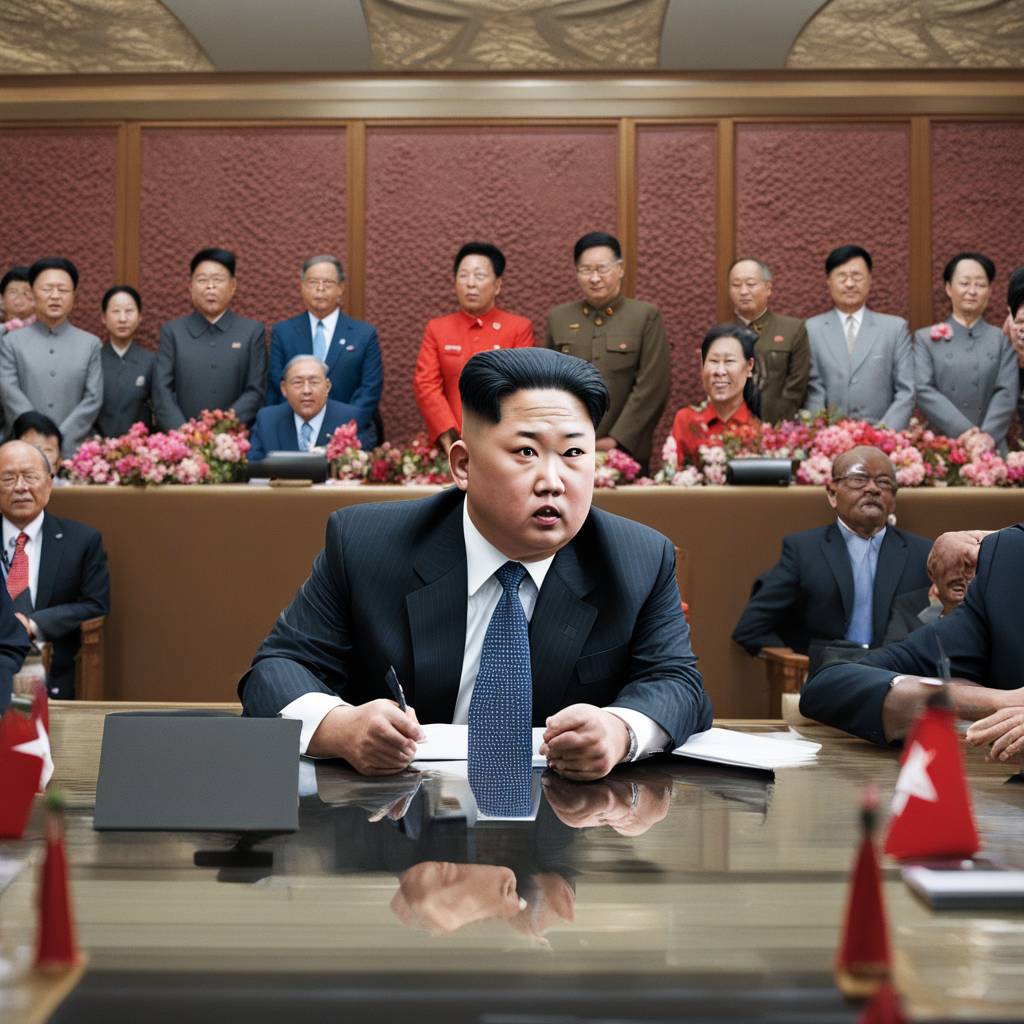In a recent meeting with military officials, North Korean leader Kim Jong Un vowed to mobilize an overwhelming assault on any hypothetical enemy, rejecting President Biden’s calls for cooperation. Kim Jong Un made these comments at the Kim Jong-il University of Military and Politics, stating that now is the time to be thoroughly prepared for war and that North Korea should be firmly and perfectly prepared to win without fail. The North Korean leader emphasized the importance of neutralizing the enemy’s superiority in ideology and war methods. This aggressive tone from Kim Jong Un has escalated tensions between North Korea, Japan, South Korea, and the United States.
President Biden, on the other hand, has made appeals for dialogue with North Korea, encouraging Kim Jong Un to accept a Japanese proposal for international talks. Biden stressed the importance of open dialogue without preconditions and expressed hope for peaceful discussions with North Korea. Japanese Prime Minister Kishida also highlighted the potential benefits of establishing a meaningful relationship between Japan and North Korea for the peace and stability of the region. Despite these diplomatic efforts, North Korea has maintained a hostile international posture, declaring South Korea as its primary foe and principal enemy.
The deteriorating relations between North Korea and its neighboring countries have been exacerbated by recent developments, such as North Korea’s successful testing of a new hypersonic missile and expansion of its nuclear program. Kim Jong Un’s aggressive rhetoric and military maneuvers have raised concerns about the possibility of military conflict in the region. The rejection of President Biden’s calls for cooperation and the emphasis on military preparedness indicate North Korea’s determination to assert its dominance and resist diplomatic overtures.
Kim Jong Un’s focus on military strength and ideological superiority as essential elements for victory in war reflects North Korea’s longstanding commitment to self-reliance and defiance against external threats. The leader’s remarks at the military meeting underscore the regime’s reliance on military force as a means of ensuring its survival and maintaining control over the population. The escalation of tensions between North Korea and its neighbors highlights the volatile nature of the region and the potential for conflict if diplomatic efforts fail to de-escalate the situation.
As North Korea continues to defy calls for cooperation and escalate its aggressive rhetoric, the prospects for peaceful dialogue and diplomatic resolution appear increasingly bleak. The rejection of President Biden’s appeals for dialogue and the emphasis on military preparedness suggest that North Korea is doubling down on its confrontational stance towards its adversaries. The international community is closely monitoring developments in the region and working towards finding peaceful and diplomatic solutions to the escalating tensions. However, the unpredictability of North Korea’s leadership and the regime’s commitment to military strength create challenges for achieving lasting peace and stability in the region.













